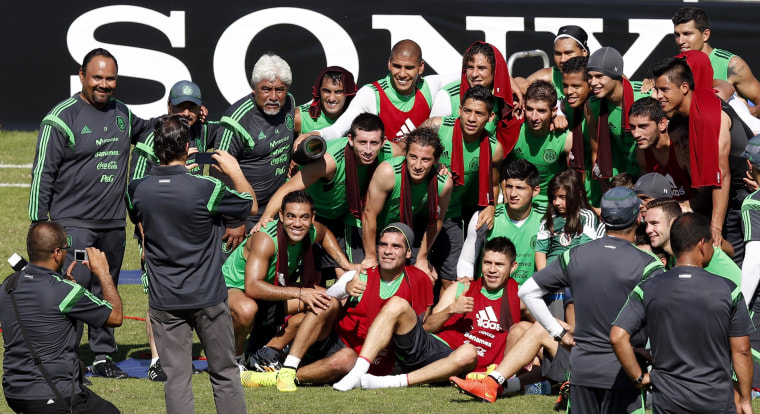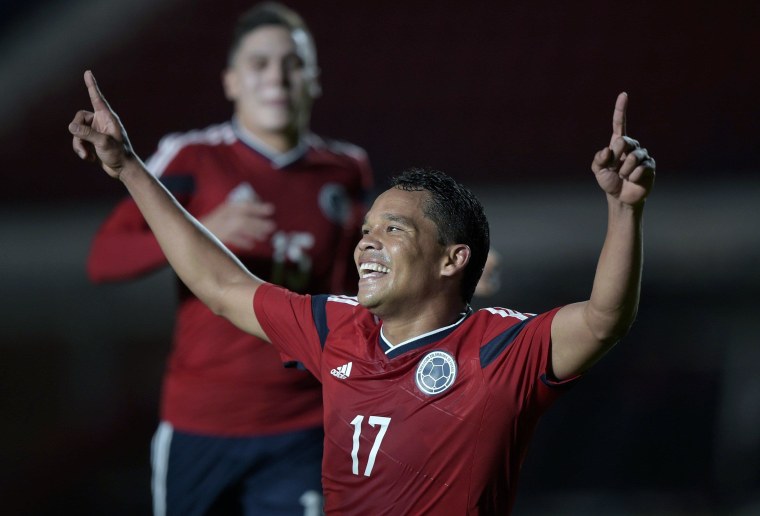NEW YORK, NY -- In Nick Hornby's autobiographical book “Fever Pitch” about his obsession and love of soccer, the British author writes "it has become quite clear to me that my devotion says things about my own character and personal history.”
Enrique Diaz Gomez, a 23 year old Chivas de Guadalajara fan who lives in New York, agrees.
“You do not have to cheer for a team, but it does say something about who you are,” said the soccer aficionado, who styled his hair as a teen to look like Mexican soccer idol Oswaldo Sanchez. Diaz Gomez explained that he grew up as a Chivas fan because his grandmother was also a fan. After immigrating to New York, watching the team play on television made him feel closer to Mexico and to his family.

Diaz Gomez will be one of the many millions of 'futbol' enthusiasts around the world who will be glued to his television during the month-long World Cup tournament starting Thursday, June 12. Soccer fans are sometimes characterized by eccentric habits and superstitions like watching games from the same seats, growing playoff beards, and other rituals demanded by deep devotions.
But for most of these fans who will be tracking the games between 32 countries, soccer is much more than a sport or hobby. The fates of their teams in Brazil are linked in many ways to their family stories and aspirations.
For Colombian fans, one such game was played on March 26, 2014. Sevilla FC striker Carlos Bacca became an international star after scoring two goals against Real Madrid, the world’s most expensive soccer team in history.

Fans all over the world could not help identifying with the 27-year-old underdog who had started playing soccer professionally in Colombia while driving a bus part-time to make ends meet for his family. Now the World Cup dreams of many Colombians depend on Bacca’s ability to score, especially after all star striker Radamel Falcao could not make Colombia’s national team roster.
A grocer, a meatpacker, an ice seller, a carnival musician, and other working class players became the first world soccer champions from Latin America, inspiring legions of fans.
At other times, games go beyond personal victories to reveal much larger stories about people and countries. In the book "Soccer in Sun and Shadow," Uruguayan writer, human rights activist and soccer fan Eduardo Galeano describes how a grocer, a meatpacker, an ice seller, a carnival musician, and other working class players became the first world champions from Latin America.
Galeano recounts that the 1924 Uruguayan Olympic team had traveled to Europe on borrowed money, slept on wooden benches, and played friendly soccer games for room and board. Their first game against Yugoslavia attracted nearly 2,000 fans, the Uruguayan flag was flown upside down, and a Brazilian march song was played as their national anthem.
But with each match, Uruguay seduced and amazed fans in Paris with their short passes and high-speed dribbling. And after winning the gold Olympic medal, their sky-blue soccer jersey became a flag, a symbol of Latin American pride everywhere.
Today, soccer has become a high-stakes for-profit business. But as Brazil’s president Dilma Rousseff faces criticism for delayed World Cup construction and stalled public works projects, fans remind us that soccer is still the most popular sport in the world because it inspires us to believe.
“You can cheer for your team… even when they are not winning, because you hope they will,” said Gomez. And it is through the exalted eyes of a soccer fan that stadiums become temples, and players become gods who allow fans to dream big - and in many cases think of home.